
“Christianity stands or falls with the reality of the raising of Jesus from the dead by God.”
| Theology of Hope (New York: Harper & Row, 1967), 165.
LDS Quotes on Resurrection

“Christianity stands or falls with the reality of the raising of Jesus from the dead by God.”
| Theology of Hope (New York: Harper & Row, 1967), 165.
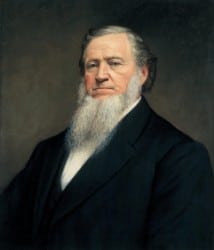
The earth will abide its creation, and will be counted worthy of receiving the blessings designed for it, and will ultimately roll back into the presence of God who formed it and established its mineral, vegetable, and animal kingdoms. These will all be retained upon the earth, come forth in the resurrection, and abide for ever and for ever.
| Journal of Discourses, 8:8
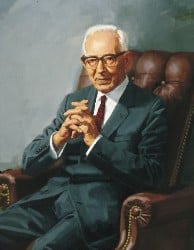
After the resurrection from the dead our bodies will be spiritual bodies, but they will be bodies that are tangible, bodies that have been purified, but they will nevertheless be bodies of flesh and bones. They will not be blood bodies. They will no longer be quickened by blood but quickened by the spirit which is eternal, and they shall become immortal and shall never die.
| Doctrines of Salvation, Vol. 2, p. 285
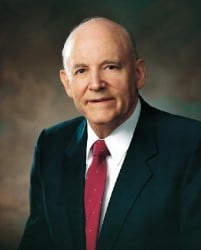
Elder Howard W. Hunter proclaimed that “the doctrine of the Resurrection is the single most fundamental and crucial doctrine in the Christian religion. It cannot be overemphasized, nor can it be disregarded. Without the Resurrection, the gospel of Jesus Christ becomes a litany of wise sayings and seemingly unexplainable miracles – but savings and miracles with no ultimate triumph. No, the ultimate triumph is in the ultimate miracle: for the first time in the history of mankind, one who was dead raised himself into living immortality.”
| Conference Report, April 1986, p. 18
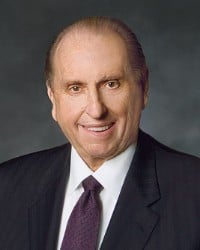
From [the] majestic world of spirits we enter the grand stage of life to prove ourselves obedient to all things commanded of God. During mortality we grow from helpless infancy to inquiring childhood and then to reflective maturity. We experience joy and sorrow, fulfillment and disappointment, success and failure. We taste the sweet, yet sample the bitter. This is mortality. Then to each life comes the experience known as death. None is exempt. All must pass its portals. To most, there is something sinister and mysterious about this unwelcome visitor called death. Perhaps it is a fear of the unknown which causes many to dread its coming . . . [The Savior’s] words to the grieving Martha and to His disciples today bring comfort to us:” ‘I am the resurrection, and the life: he that believeth in me, though he were dead, yet shall he live.”
| “Mrs. Patton – the Story Continues,” Ensign, November 2007, pp. 22-23
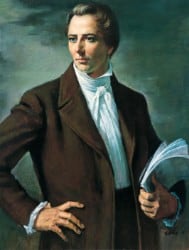
What did Jesus say? “As the Father hath power in himself, even so hath the Son power.” To do what? Why, what the Father did, to lay down his body and take it up again. Jesus, what are you going to do? “To lay down my life as my Father did, that I might take it up again.”
| Joseph Smith, Discourse of 7 April 1844, recorded by William Clayton; KFD, p. 30

“President Joseph F. Smith said that the same person, the same form and likeness, will come forth “Even to the wounds in the flesh. Not that a person will always be marred by scars, wounds, deformities, defects or infirmities removed in their course, in their proper time, according to the merciful providence of God.” . . .“He did not intend to teach that the adult who loses a leg will come forth without that leg until it can be grafted on after the resurrection. Rather, his body will come forth complete in every part. Deformities and the like will be corrected, if not immediately at the time of the uniting of the spirit and body, so soon thereafter that it will make no difference. We may be sure that every man will receive his body in its perfect frame in the resurrection.”
| Gospel Doctrine, 4th Ed., p. 30
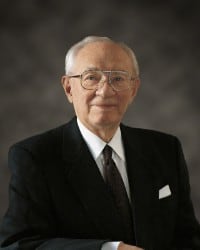
The resurrection of Jesus Christ is one of the greatest messages of all Christianity. It is a divine gift from a loving Father to all mankind. The Savior’s arms are stretched forth to us all, who, by accepting Him in His appointed way, may become not just believers but true disciples and with Paul hope to “obtain a better resurrection” (Hebrews 11:35).
Despite the sting of death and the loneliness of separation from loved ones who have gone to the grave, in our hour of deepest sorrow and trial we draw hope and peace and certitude from the words of the angel that first Easter morning, “He is not here: for he is risen, as he said” (Matthew 28:6). “Thanks be to God, which giveth us the victory through our Lord Jesus Christ” (1 Corinthians 15:57).
Jesus is our King, our Lord, our Master, the living and resurrected Christ, who stands on the right hand of His Father. He lives! He lives, resplendent and wonderful, the living Son of the living God. Of this we bear solemn, personal testimony at this season of rejoicing, this Easter season when we commemorate the miracle of the empty tomb.
| First Presidency Easter Message [Gordon B. Hinckley, Thomas S. Monson, James E. Faust], 2003